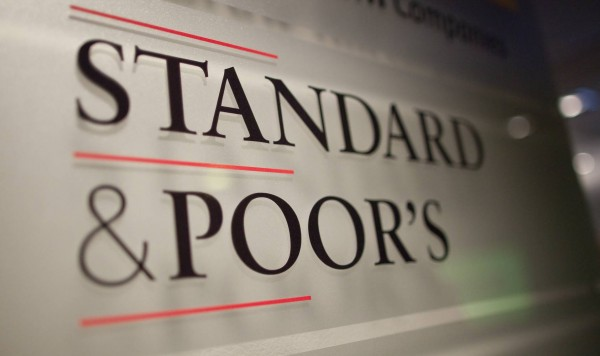
After going through various considerations, finally the world rating agency Standard & Poor's (S&P) Ratings upgraded Indonesia's debt rating from BB + with a positive outlook to BBB- with a stable outlook on Friday (5/19). This result puts Indonesia as one of the investment-grade countries.
This rating enhancement also complements the investment-grade rating previously given by three other world rating agencies, namely Moody's Investor Services, Fitch Ratings, and Japan Credit Rating Agency (JCRA).
This investment grade worth saving can not be separated from a number of progress that has been achieved by Indonesia, both in terms of fiscal and monetary.
On the fiscal side, the S&P appreciates a number of policies that have been carried out by the government in managing the State Revenue and Expenditure Budget (APBN), so that it becomes more realistic and measurable with the impact going forward to reduce the occurrence of deficit worsening.
The government policy will also reduce the risk of an increase in the ratio of debt to Gross Domestic Product (GDP) and the burden of debt interest payments.
S&P also participates in monetary policy. Bank Indonesia (BI) is considered to play a key role in maintaining economic growth while guarding macroeconomic stability.
In the past two years, BI has been quite capable of supporting economic growth, maintaining macroeconomic stability, specifically inflation and the exchange rate, and encouraging the active role of the financial sector in financing the economy.
Cheap Funds
One positive impact of achieving this investment-worthy ranking is making global investors' perceptions of the Indonesian economy even more positive. This will encourage increased confidence which in the beginning will encourage the flow of funds (capital inflow) in large numbers, both entering through financial markets and portfolios and through the real sector.
That is why, when this investment-grade rating is announced, the financial markets and portfolios react positively. The Composite Stock Price Index (CSPI) rose 2.6 percent to 5,791.9, the yield on the benchmark 10-year SUN fell to 6.9%, and the rupiah strengthened.
In fact, this investment-worthy increment ranking encouraged analysts to hoist the 2017 CSPI projection to 6,200-6,400 from previously 5,800-6,000 and the yield of the benchmark 10-year SUN fell from the previous level of 7% -7.5% to 6.2% -6.5 %.
The flow of large amounts of global funds will drive down the cost of funds so that the gap to obtain cheap funds is even greater and more open.
These cheap funds can be utilized by the government as a source of development funding, especially the need for building strategic infrastructure of enormous value.
As a result, these low-cost funds will be able to support the APBN, which has limited capacity and at the same time increases supply from the financial sector, whose capacity is also limited, prone to mismatch, and still has high-interest costs.
The private sector will also be able to take advantage of these cheap funds, especially through the issuance of bonds, shares, and other financing structures. As a result, this can further stimulate investment that is really needed by the Indonesian economy.
Streaming to the Real Sector
Even so, President Jokowi's far-reaching challenge was how to channel global funds into the real sector and be enjoyed by the public at large and not just be concentrated in the financial and portfolio sectors.
However, it must be recognized that global funds that are concentrated in the financial sector and portfolio can be a double-edged knife. On the one hand, it is a cheap source of funds. However, on the other hand, it can disrupt macroeconomic stability, particularly inflation and the exchange rate.
Moreover, until now uncertainty from the external side is still relatively high, so that it can add pressure to macroeconomic stability.
For this reason, so that the flow of global funds can be channeled into the real sector that is long-term and provides greater benefits and added value, then the commitment to accelerate economic structure reform becomes a necessity.
It must be admitted that Indonesia's economic structure is still very weak compared to neighboring countries. This can be proven, when economic growth is driven high, it will leave residues on the economy in the form of a spike in inflation, widening the current account deficit (DTB), and weakening of the exchange rate.
Likewise, the financial sector is quite fragile, so that when the flow of global funds reverses, it can trigger shocks to macroeconomic stability that can impact on the economy at large.
"The government has indeed begun to improve this economic structure, through the presence of economic packages, deregulation policies, and accelerated infrastructure development which will improve the investment climate. The output is expected to improve economic competitiveness and ease of doing business, which is currently still lagging behind its neighbors.”